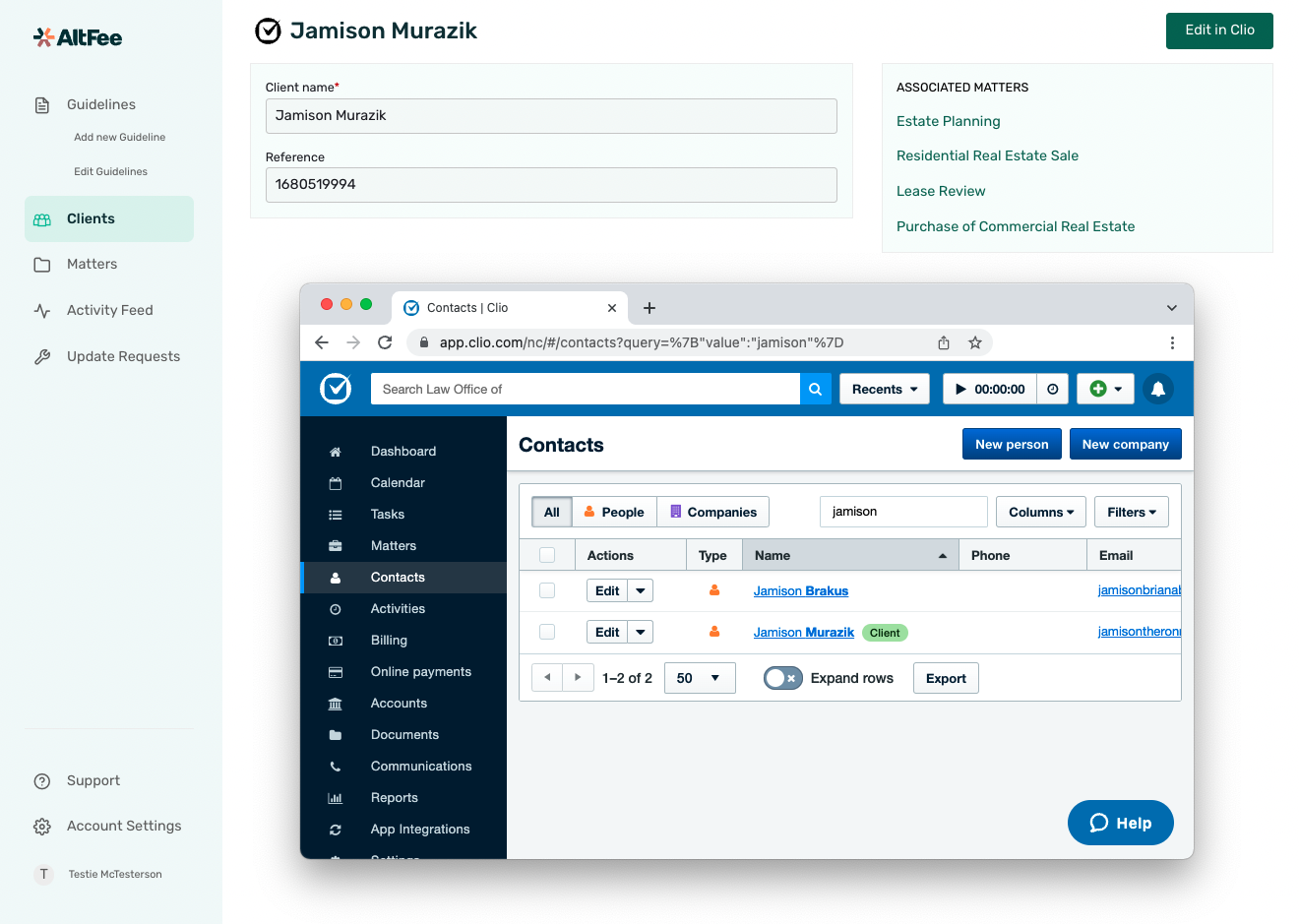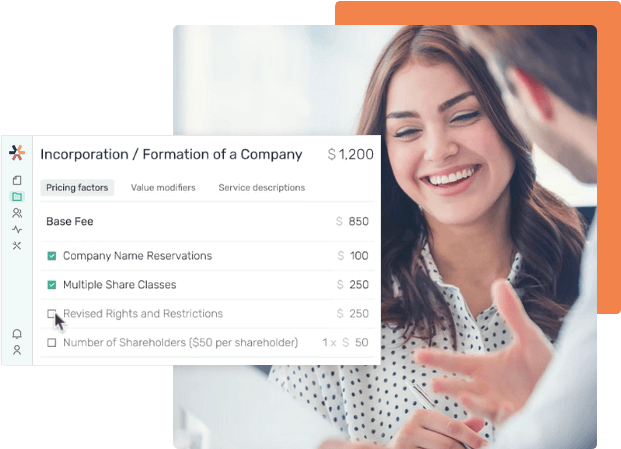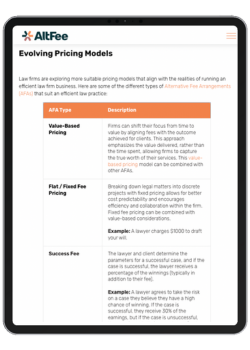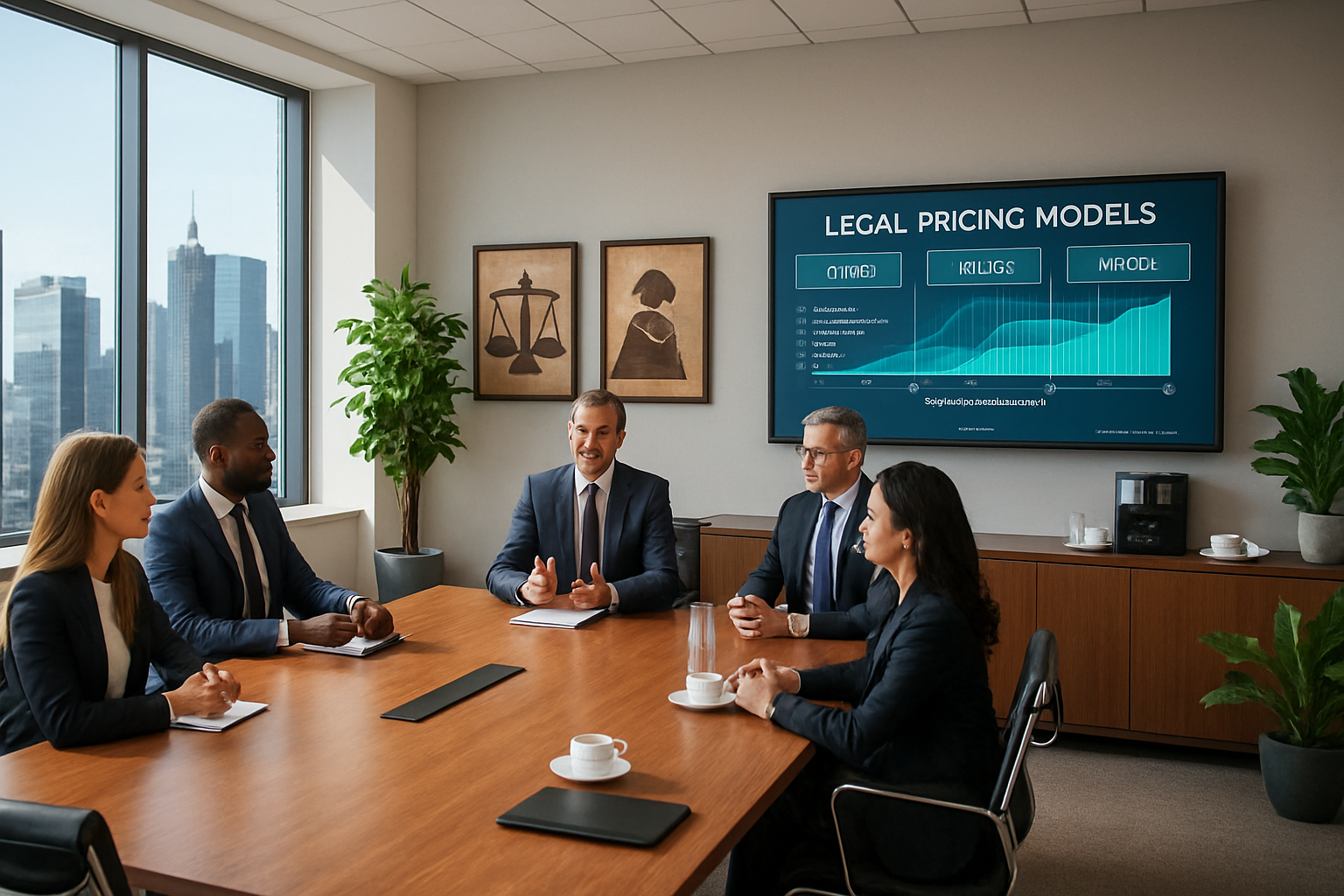- Resources
- Law Firm Efficiency: How to Boost Your Performance and Profitability
Table of Contents
In the increasingly competitive landscape of legal services, efficiency has emerged as a cornerstone of success for law firms. Achieving high levels of efficiency in legal practices not only enhances productivity but also significantly improves client satisfaction and profitability. In this guide, we will explore what law firm efficiency entails, why it is crucial, and how you can improve it within your firm. From the importance of effectively allocating your resources to practical tips for boosting efficiency in your firm, this comprehensive guide will equip you with the knowledge to optimize your firm's operations.

What is Law Firm Efficiency?
Law firm efficiency refers to the optimal use of time, resources, and processes to achieve maximum productivity with minimal waste. It encompasses various aspects of legal practice, including time management, resource allocation, client service, and financial management. An efficient law firm is one that delivers high-quality legal services in a timely and cost-effective manner, meeting client expectations while maintaining profitability.
Key Components of Law Firm Efficiency
At it's core, law firm efficiency is about making the most of your available resources, whether they are human, technological, or financial. Efficient time management ensures that tasks are prioritized correctly, deadlines are met, and unnecessary delays are avoided. The role of technology in enhancing law firm efficiency cannot be overstated, as modern legal tools can automate routine tasks, streamline complex processes, and facilitate better communication both within the firm and with clients. As your firm adopts more efficiencies, seamless software integration becomes essential to ensure that nothing slips through the cracks and that all tasks are completed with ease. To support this, AltFee’s software integrates with Clio, the leading provider of cloud-based legal practice management solutions, further enhancing your firm’s efficiency by encouraging the adoption of both platforms for a streamlined experience.

The Importance of Efficiency Pricing in a Law Firm
Efficiency pricing is an approach that emphasizes transparency, accuracy, and alignment with the actual value delivered to clients. Unlike traditional hourly billing, which can lead to inefficiencies and client dissatisfaction, efficiency pricing focuses on delivering clear, predictable, and fair pricing and billing practices. 53% of firms are confirming an increased demand for financial transparency in their billing and pricing practices, reinforcing the importance of adopting these efficient practices in firms.
Flat fee pricing is a common form of efficiency pricing and when compared to traditional hourly billing, you can identify the significant benefits and drawbacks of each model. Most importantly, you can see how flat fees can protect your firm’s revenue, even as you gain efficiencies.
Start Earning More Revenue with Fixed Fees
Break free from hourly pricing and take the fear out of scoping and pricing client projects to start maximizing profitability.
Book a Call
Benefits and Drawbacks of Flat Fees vs. Hourly Billing
|
|
Flat Fee Pricing |
Hourly Billing |
|
Benefits
|
Predictable costs: Clients know exactly what they will pay upfront, eliminating surprise invoices and budget overruns. |
Upfront simplicity: No thorough upfront conversation is required before starting a new matter. |
|
Value-driven service: The focus shifts from time spent to results achieved, encouraging lawyers to work more efficiently and effectively. |
Adaptability: Hourly billing can be adapted to fit the needs of any case, regardless of size or complexity. |
|
|
Reward efficiency: Leverage technology without compromising profitability. |
Easy to calculate: Clients can see exactly how much they are being charged for each hour of work performed. |
|
|
|
|
|
|
Drawbacks
|
Upfront time commitment: Flat fees require more thorough upfront conversation with clients to accurately scope and price a matter. |
Disincentive for efficiency: Lawyers may be less motivated to work efficiently if they are billing by the hour. |
| Potential for scope creep: Clients may be tempted to add additional work to the project without increasing the fee. |
Potential for disputes: Clients may dispute the number of hours billed or the hourly rate charged, resulting in write-offs and poor collections. |
|
| Perceived higher upfront cost: Flat fees can be perceived by clients as more expensive than hourly billing. |
Requires careful time tracking: Lawyers must track their time in 6-minute increments. |
Implementing Efficiency Pricing
Automated Billing Systems: Utilize software that can automatically track billable hours, generate invoices, and monitor payments. Automation tools, including Legal AI tools, work to enhance a legal professional's abilities, not replace them. Learning more about these tools, and how to effectively integrate them into your practice can help address lawyer burnout and inefficiencies.
Alternative Fee Arrangements (AFAs): Explore AFAs that align the firm's interests with those of the client, fostering trust and long-term partnerships. There are several types of AFAs, each utilizing different structures to help deliver value to clients. For a deeper understanding of how these arrangements work within a firm, you can refer to our complete guide to Alternative Fee Arrangements, which provides comprehensive insights into typical arrangements and their functions.
Take Advantage of Historical Billing Data: Use historical billing data to create predictive models that estimate future billing for similar cases. This can help provide clients with more accurate cost estimates upfront.
Monitor and Adjust Billing Practices Regularly: Foster a culture of continuous improvement by regularly reviewing and updating billing practices to reflect new efficiencies, client feedback, and industry best practices.
How Poor Law Firm Efficiency Can Result in Serious Issues
Inefficiency within a law firm can have far-reaching consequences, affecting everything from client satisfaction to the firm’s bottom line. When processes are inefficient, clients often experience delays, errors, and a lack of communication, leading to frustration and a potential loss of trust. This dissatisfaction can prompt clients to seek legal services elsewhere, harming the firm’s reputation and revenue streams.
Financial losses are another significant consequence of poor efficiency. Inefficient processes often lead to increased operational costs, missed billing opportunities, and ultimately, reduced profitability. For example, a law firm that struggles with disorganized billing practices might find themselves frequently dealing with disputes over invoices, leading to delays in payment and strained client relationships.
Moreover, a reputation for inefficiency can damage a law firm’s ability to attract and retain clients as well as top legal talent. In a competitive market, clients are more likely to choose firms that demonstrate a commitment to efficient, high-quality service. In fact, 75% of firms agree that there is an opportunity to introduce more Alternative Fee Arrangements (AFAs) to stay competitive, underscoring the importance of adapting to client demands for efficiency. Similarly, talented lawyers may prefer to work for firms that offer a well-organized, efficient work environment where they can focus on delivering excellent legal services rather than dealing with the frustrations of inefficiency.
Poor legal department efficiency can also expose the firm to regulatory risks. Failing to manage time and resources effectively can lead to non-compliance with legal and regulatory requirements, potentially resulting in penalties, litigation, or even the loss of a professional license.
5 Ways to Improve Legal Efficiency
Improving legal efficiency requires a strategic approach that addresses multiple facets of a law firm’s operations. Here are five proven methods to enhance efficiency in your legal practice:
1. Adopting Legal Technology:
- Automation and AI: Implementing technology that automates routine tasks, such as document generation, e-discovery, and contract drafting, can free up valuable time for lawyers to focus on more complex legal work. According to Clio’s 2023 legal trends report, 38% of legal professionals expect AI to improve efficiency.
- Case Management Systems: These tools help organize and streamline case-related information and legal documents, ensuring that all team members have access to the latest updates and can collaborate effectively.
2. Implementing Project Management Techniques:
- Legal Project Management (LPM): By applying project management principles to legal cases, firms can plan, execute, and monitor legal work more efficiently. LPM tools such as Clio, help track progress, manage billing and communication, and ensure that deadlines are met.

- Task Prioritization: Develop systems for prioritizing tasks based on urgency and importance, ensuring that critical work is completed first.
3. Training and Development:
- Continuous Education: Invest in ongoing training for your legal team to keep them updated on the latest legal practices, technologies, and client service strategies.
- Mentorship Programs: Establish mentorship programs to help junior lawyers develop their skills and contribute more effectively to the firm’s operations.
4. Efficient Resource Allocation:
- Staffing Models: Use data-driven insights to determine the optimal staffing levels for your firm, ensuring that resources are neither overextended nor under-utilized.
- Outsourcing: Consider outsourcing non-core tasks, such as IT support or document review, to specialized providers, allowing your team to focus on higher-value activities.
5. Enhancing Communication:
- Internal Communication Tools: Implement platforms that facilitate real-time communication and collaboration among team members, such as Slack or Microsoft Teams.
- Client Communication: Regular updates and clear communication with clients can prevent misunderstandings and ensure that expectations are met.
Tips for Improving Pricing and Billing Efficiency at Your Law Firm
Pricing and billing efficiency are both critical to a law firm’s success. Here are some top tips to streamline your processes and improve overall efficiency:
Use Legal Pricing Software:
- Automation: Invest in legal pricing software that systemizes the process of scoping and pricing.
- Capture Learnings: Collaborate with colleagues on pricing and feed your collective learnings back into your pricing system.
Regularly Review Billing Practices:
- Audits: Conduct regular audits of your pricing and billing practices to identify inefficiencies and areas for improvement.
- Client Feedback: Seek feedback from clients on your practices to ensure that they are meeting expectations.
Transparency with Clients:
- Upfront Communication: Clearly communicate your pricing and billing policies to clients at the outset of a case. This transparency can prevent disputes and build trust.
- Detailed Invoices: Provide clients with invoices that break down the services provided and the corresponding charges.
Implementing Alternative Fee Arrangements such as Flat Fees:
- Flat Fees: Offer flat fees for legal services, providing clients with cost certainty and simplifying the billing process.
- AFAs: Also consider using AFAs that align the firm’s compensation with the value delivered to the client, such as success fees or value-based billing.
Training Staff on Billing Practices:
- Billing Training: Ensure that all staff members involved in billing understand the firm’s pricing and billing policies and procedures.
- Consistency: Establish standard practices across the firm to ensure consistency and accuracy in all invoices.
How Does AltFee’s Software Improve Legal Team Efficiency?
AltFee’s software is designed to address the unique challenges of legal pricing and efficiency. Here’s how it can improve your legal team’s efficiency:
- Scoping and Pricing: AltFee enables firms to break down legal work into specific projects with a clearly defined scope, making it easier to price services accurately and avoid scope creep.
- Collaboration: The software facilitates collaboration among team members, allowing for collective input on pricing strategies and ensuring that everyone is on the same page.
- Customization and Learning: AltFee’s platform allows firms to customize guidelines and incorporate new learnings over time, ensuring that billing practices evolve with the firm’s needs.
- Centralized Data: With all billing data centralized in one location, firms can easily review and analyze past projects to refine their pricing models and improve future performance.
How Does Increasing Law Firm Efficiency Lead To Profitability?
There is a direct link between efficiency and profitability in law firms when they shift from the hourly billing model to alternative fee arrangements. By streamlining processes, improving billing practices, and optimizing resource allocation, firms can reduce costs and increase revenue. An efficient firm can handle more matters, leading to increased revenue without necessarily increasing the workload.
Efficiency also helps reduce operational costs. By minimizing waste and inefficiencies, firms can lower their overhead expenses, which directly improves their bottom line. Additionally, efficient firms are better positioned to retain clients and attract new business. Clients are more likely to remain loyal to a firm that delivers high-quality services efficiently, leading to repeat business and referrals.
Moreover, firms that prioritize efficiency are better positioned to compete in a crowded market. By demonstrating a commitment to delivering value through efficient practices, these firms can attract more clients and top legal talent, further enhancing their profitability and long-term success.
Conclusion
Law firm efficiency is not just a buzzword; it’s a critical factor in the success of any modern legal business. By focusing on efficiency in billing through the use of alternative fee pricing, resource allocation, and client service, law firms can enhance their performance, improve client satisfaction, and boost profitability. AltFee’s software offers a powerful tool to help firms achieve these goals, providing the transparency, accuracy, and customization needed to thrive in today’s competitive legal environment.
Ready to take your law firm’s efficiency to the next level? Explore how AltFee can help you streamline your pricing practices and improve overall efficiency. Schedule a demo today to see AltFee in action and discover the difference it can make for your firm’s pricing.
Start Earning More Revenue with Fixed Fees
Break free from hourly pricing and take the fear out of scoping and pricing client projects to start maximizing profitability.
Book a Call







Newsletter Signup
Subscribe to our newsletter to receive the latest news.



